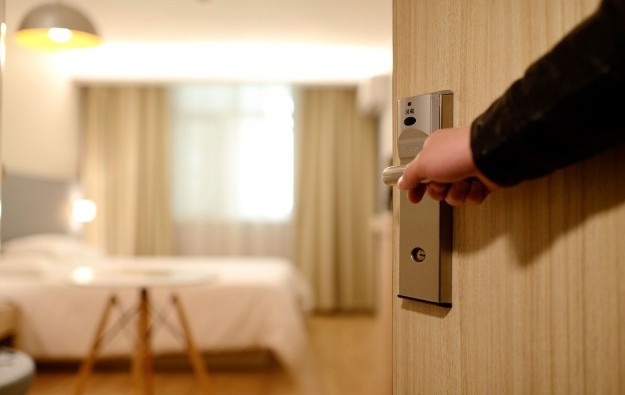Budget hotel rule tweaks may aid Macau tourism: reps
Feb 18, 2019 Newsdesk Latest News, Macau, Top of the deck

A Macau government initiative purportedly to relax the conditions required for opening a two-star hotel in the city, and to encourage the setting up of other forms of “budget accommodation” could help the sustainability and regional competitiveness of Macau’s tourism sector, said representatives of several local travel sector trade bodies in comments to GGRAsia.
A number of investment analysts covering the Macau gaming sector has suggested that hotel capacity constraints and pricing are a potential brake on the growth of mass-market tourism in Macau. A five-star hotel room in the Macau casino-hotel market is typically more expensive than equivalent accommodation in the world’s other major casino hub, Las Vegas, Nevada, in the United States. That is the case even though per capita gross domestic product in mainland China – the largest-single tourist source market for Macau – was 3.4 times below that of the U.S. in 2017, according to World Bank data.
Now Macau’s Legislative Assembly is to consider a local-government proposal that might mean those investors wishing to open a two-star hotel would face less stringent conditions regarding “supporting facilities and services”.
The draft bill on the proposal was published on Wednesday, but detail on what conditions might be relaxed has not been given at this stage.
In the legal proposal, the government has suggested reducing the minimum number of rooms required for a venue to be classified as a “hotel”, from 40 to 10. The government also intends to introduce a category called “budget accommodation”. Operators of such venues would be allowed to rent out accommodation bed by bed, rather than room by room. Currently the lowest category of registered Macau accommodation is for guest houses, where rentals are done per room.
In addition, the draft bill suggests raising the bar conditions-wise in terms of investors being able to classify a local hotel as either “five star” or “five star deluxe”.
Better balance
Kenny Cheung Kin Chung, secretary general of the Macau Hoteliers and Innkeepers Association, said such changes might stimulate investment to make the mix of accommodation in the Macau tourism market more “balanced”.
“For the more than 38,000 hotel rooms here, many of them are of five or four stars. The government proposal, once in effect, will help the city in allowing the establishment of more lower-tier rooms in the market. That also fits the tourism trend now,” Mr Cheung remarked to us.
As of December, Macau had a total of 38,800 hotel and guesthouses rooms, with 63 percent of them supplied by the five-star segment. Three-star accommodation accounted for only 13 percent of Macau’s total room inventory, while two-star space represented just 2.3 percent, according to the latest available data from the city’s Statistics and Census Service.
Mr Cheung added that if the proposal stimulated the setting up of further low-cost accommodation in the city, it could lead to more regionally-competitive room rates for three-star or even four-star accommodation.
In any case, “having more competition is a good thing,” Mr Cheung stated. “Overall, we’re supportive of the government initiative to increase more lower-tier hotel room supply.”
Macau Travel Industry Council vice president Wong Fai said the government’s initiative on the matter could possibly attract more investment in creation of boutique hotels in the city.
“The legal amendment even mentioned that hotels can be established inside classified buildings, which is good – especially for the setting of boutique hotels. But we hope that the government can also consider allowing guest accommodation to be created in commercial and industrial buildings…as long as the settings satisfy safety and hygiene requirements,” Mr Wong remarked to us.
The government’s legal proposal also suggested a so-called “one-stop” licensing procedure for hotel catering venues, bars and nightclubs, as well as a renewable temporary licensing permit issuance for these businesses that carry a validity of six months. The amount of red tape necessary in order to enter the city’s hospitality sector is a common complaint among investors.
Related articles
-
 New China IVS cities to amp Macau...
New China IVS cities to amp Macau...May 27, 2024
-
 Macau had over 600k visitors during...
Macau had over 600k visitors during...May 06, 2024
More news
-
 Donaco EBITDA up y-o-y to above US$4mln...
Donaco EBITDA up y-o-y to above US$4mln...Jul 26, 2024
-
 HK listed Palasino upgrades Czech...
HK listed Palasino upgrades Czech...Jul 26, 2024
Latest News
Jul 26, 2024
Border-casino operator Donaco International Ltd has achieved a 164.17-percent year-on-year increase in its latest quarterly group earnings before interest, taxation, depreciation and amortisation...Sign up to our FREE Newsletter
 (Click here for more)
(Click here for more)
Pick of the Day
”We’ve got more traction outside of Macau at the moment. But Macau’s going be a bigger focus for us”
David Punter
Regional representative at Konami Australia
Most Popular
 Sheraton brand to exit Londoner Macao, to be Londoner Grand July 25, 2024
Sheraton brand to exit Londoner Macao, to be Londoner Grand July 25, 2024  Macau regulator probes unlicensed gaming agents July 24, 2024
Macau regulator probes unlicensed gaming agents July 24, 2024  Philippines gives 20k aliens in POGOs 60 days to leave July 25, 2024
Philippines gives 20k aliens in POGOs 60 days to leave July 25, 2024  Philippines-listed DigiPlus says not affected by POGO ban July 24, 2024
Philippines-listed DigiPlus says not affected by POGO ban July 24, 2024  Sands China 2Q EBITDA down q-o-q amid low hold, renovation July 25, 2024
Sands China 2Q EBITDA down q-o-q amid low hold, renovation July 25, 2024






